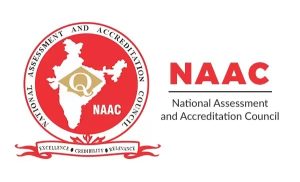Journal of National Law University Delhi
The Journal of National Law University, Delhi (JNLUD) is the flagship journal of the National Law University Delhi, [ISSN No: 2277-4017] one of the premier law schools in India. This peer-reviewed, faculty-edited, open access, international journal promotes inter-disciplinary and empirical discussions on diverse areas of law. It is widely read by scholars, judges, and practitioners across the world. The journal was founded in the year 2013 and within a short span of time, it has achieved wide recognition due to the quality and diversity of works published. JNLUD is a member of the Committee on Publication Ethics (COPE).
Aims & Scope
The Journal of National Law University, Delhi (JNLUD) aims to promote inter-disciplinary and empirical discussions on diverse areas of law. Through publication of high-quality research on diverse and contemporary topics, it aims to contribute to better policy making and judicial discussions. JNLUD encourages academics in law and cognate disciplines to contribute to the Journal by revisiting and reimagining the boundaries of law through innovations in method and form. As is evident from the Advisory Board of the journal as well as the kind of manuscripts published by the journal in the past, the journal has an international focus and outlook.
The journal follows a rigorous blind peer-review policy.
There are no fees payable to submit or publish in this Journal.
Editorial Policies
JNLUD is published annually and includes articles, comments, and book reviews. All submissions must be made online (here). JNLUD is currently unable to accept submissions from students pursuing undergraduate or post graduate studies. In such instances it invites students to make their submission to the NLUD Journal of Legal Studies. However, submissions from research scholars including doctoral scholars would be considered.
Submission types
Manuscripts must be in English. The preferred lengths for submissions are as follows:
- Articles: 6000–8000 words
- Notes/Comments: 4000-5000 words
- Book Reviews: 1500–2500 words
All submissions (except Book Review)) should be accompanied by an abstract of not more than 300 words and important 5 Key words.
Only manuscripts of sufficient quality that meet the aims and scope of JNLUD will be reviewed.
As part of the submission process, you will be required to warrant that you are submitting your original work, that you have the rights in the work, and that you have obtained and can supply all necessary permissions for the reproduction of any copyright works not owned by you, that you are submitting the work for first publication in the Journal and that it is not being considered for publication elsewhere and has not already been published elsewhere.
Please see the call for papers for detailed submission guidelines.
Authorship
All parties who have made a substantive contribution to the article should be listed as authors. Principal authorship, authorship order, and other publication credits should be based on the relative scientific or professional contributions of the individuals involved, regardless of their status. A scholar is usually listed as principal author on any multiple-authored publication that substantially derives from the scholar’s dissertation or thesis.
All contributors who do not meet the criteria for authorship should be listed in an Acknowledgements section. Examples of those who might be acknowledged include a person who provided purely technical help, or a department chair who provided only general support.
Please supply any personal acknowledgements separately to the main text to facilitate anonymous peer review.
Permissions
Please ensure that you have obtained any necessary permission from copyright holders for reproducing any illustrations, tables, figures or lengthy quotations previously published elsewhere.
Publishing Policies
Publication ethics
JNLUD is committed to upholding academic and research integrity. Authors are encouraged to refer to the Committee on Publication Ethics’ International Standards for Authors.
Please note that submissions not conforming to these guidelines may be returned or rejected. While we strive to provide substantive feedback for every submission we receive, it may not always be possible to do so, given the large number of submissions. We reserve the right to reject submissions without providing substantive feedback.
Plagiarism
JNLUD take issues of copyright infringement, plagiarism or other breaches of best practice in publication very seriously. We seek to protect the rights of our authors and we always investigate claims of plagiarism or misuse of published articles. Equally, we seek to protect the reputation of the Journal against malpractice. Submitted articles may be checked with duplication-checking/anti-plagiarism software. Where a manuscript, for example, is found to have plagiarized work or included third-party copyright material without permission or with insufficient acknowledgement, or where the authorship of the article is contested, we reserve the right to take action including, but not limited to: publishing an erratum or corrigendum; retracting the article; taking up the matter with the head of department or dean of the author’s institution and/or relevant academic bodies or societies; or taking appropriate legal action.
Please note that, in the event that a contribution submitted to JNLUD has been submitted and accepted by any other Journal or online platform, the author must withdraw their contribution. If JNLUD accepts the contribution first, the author must withdraw it from all other Journals and online platforms. Failure to do so will lead to removal of the piece from consideration for publication in the JNLUD. Please note that we do not allow cross-posting of articles.
Reference style: Journal of National Law University Delhi adheres to OSCOLA citation style (Link).
Editorial Team
Prof. (Dr.) Amita Punj, Managing Editor
Dr. Amita Punj is a Professor of Law at the National Law University Delhi. She was awarded the British Chevening Scholarship for pursuing an LLM at the University of Warwick in 2002 and the VEWA fellowship for teaching and research in Europe in 2010. She teaches Jurisprudence and Legal Methods. Over the years she has also taught Research Methodology, Law and Poverty and Human Rights. For more than a decade, she has been lecturing in the ‘Sustainable Development and Global Justice’ course which is a part of the Masters Programme (LLM) at the University of Antwerp, Belgium. Before getting into academia, she worked with the Commonwealth Human Rights Initiative (CHRI) and Partners for Law in Development (PLD) engaging with issues of human rights and gender justice. She is also the Director of the Centre for Law, Justice and Development (CLJD) at NLU Delhi which has been working on the rights of the marginalised through empirical research, policy interventions, training and creation of resource materials of diverse kinds. Her areas of interest include philosophy of law, law and development, human rights and gender justice.
Prof. (Dr.) Mukul Raizada, Senior Editor
Dr. Mukul Raizada is a Professor of Law at the National Law University Delhi. He has over two decades of academic experience teaching at undergraduate and postgraduate levels since 2003. A trained teacher of Clinical Legal Education, he holds a Postgraduate Diploma in Victimology and Victim Assistance from the Tokiwa International Victimology Institute, Japan. He has contributed to legal education through curriculum development, co-coordinating the UGC MOOCs course on Substantive Criminal Law, and authoring content for the UGC ePG Pathshala Project. He has also imparted legal education in the domain of criminal law, criminal justice administration and victim justice at institutions such as the Delhi Police Academy, CRPF Academy, BSF Academy, Bureau of Parliamentary Studies and Training (BPST), Lal Bahadur Shastri National Academy of Administration (LBSNAA), and Delhi Judicial Academy (DJA). He continues to coordinate and teach criminal law courses under the university’s MoUs with these academies. His areas of interest include criminal laws and criminal justice, criminal justice administration and victim justice.
Dr. Monika Negi, Associate Editor
Dr. Monika Negi is an Assistant Professor of Law at National Law University Delhi. She obtained her legal education from the Faculty of Law, University of Delhi. While pursuing her doctorate, she assisted on a book on the Law of Trademarks (authored by Prof. Ashwani Kumar Bansal, then Dean, Faculty of Law and published by Thomas Reuters). In 2013, she was selected as one of the first Senior Research Fellows (S.R.F) at the Faculty of Law, University of Delhi. In 2018, she was appointed as the India country expert in International Law at the Conference on Teaching and Research in International Law, hosted by the National University of Singapore. In 2021, she was selected as the co-author for the first-ever open access book on public international law, titled Open Rewi, published by Open Legal Science. Her areas of interest are the history and theory of international law, sanctions in international law, law of the sea, history and theory of international trade law, global value chains in international trade, intersection between trade, environment and development under international trade.
Dr. Dakshina Chandra, Assistant Editor
Dr. Dakshina Chandra is an Assistant Professor at National Law University Delhi. She holds a B.A.LLB (Hons.) degree from NALSAR University of Law, Hyderabad, LL.M. (Corporations Law) from New York University Law School, and a PhD in Law from Deakin University School of Law, Australia. Her doctoral thesis focused on the removal of entry and practice barriers to encourage innovation and on required educational reforms to bolster innovation in legal services delivery. She has previously worked as a Fellow at the Regulatory Governance Project, NLSIU, Bangalore where she conducted research on regulatory governance, law and technology policy. She has also worked as an Associate Lecturer (Law) at Deakin Law School, Australia where she chaired and lectured several bachelor’s and master’s level law courses. Her areas of interest include regulatory governance, law and technology, legal education, history of the legal profession, professional regulation and legal ethics and administrative law.
Dr. Priya Rai, Administrative Editor
Dr. Priya Rai is the University Librarian and Director of the Centre for Research and Innovation at National Law University Delhi. She is also serving as the Head of the Justice T.P.S. Chawla Library at NLU Delhi. She has previously served in various premier universities and research institutions, like the Indian Law Institute and Library and the Guru Gobind Singh Indraprastha University. In 2012, Dr. Rai was conferred with the Bitner Research Fellowship from Cornell University Law Library (USA) and the FCIL Schaffer Grant by the American Association of Law Libraries. She was conferred a visiting Fellowship in Law Librarianship by the Institute of Advanced Legal Studies (IALS), University of London in 2013 and was invited as a Research Fellow at the University of Passau, Germany. She is currently the President of the Association of Indian Law Libraries (AILL). Her areas of interest include copyright laws, digital rights management, intellectual property rights, plagiarism, and open access movements.
Dr. Samar Iqbal Bakhshi, Administrative Editor
Dr. Samar Iqbal Bakhshi is the Deputy Librarian at National Law University Delhi. She has previously worked with the Defence Research and Development Organization (DRDO) and the Council of Scientific and Industrial Research (CSIR). She qualified UGC-JRF and secured her doctoral degree from the Department of Library and Information Science, AMU, India, in Management of Multimedia Resources. She was awarded the University Gold Medal and Hari Krishan Ahluwalia Gold Medal for securing the first position in MLISc. In her current assignment at NLUD, she is working as a team member in the Management of Library Resources and Services in Automated Environment using LIBSYS-7 with RFID system at NLUD library. She has been part of the team in integration of e-books in library automation software, implementation of Remote Access Services, development of Digital Access Portal, implementation of RFID system, etc. Her current areas of interest are efficiency enhancement via ICT application in the library for innovative services, open legal scholarship, scholarly communication and provision of discovery/federated search.
Student Editors
Manisha Aswal
Manisha is a Ph.D. scholar at the National Law University (NLU) Delhi. She is the recipient of the Junior Research Fellowship awarded by the University Grants Commission, India. Her doctoral work is centred around challenging gender stereotypes in the Indian legal system. She holds an LL.M. from NALSAR University of Law, Hyderabad (2021) and an LL.B. from the University of Delhi (2020). She has been a visiting researcher at the University of Antwerp, Belgium (2022) and Humboldt University Berlin, Germany (2023). She is also a researcher at the Centre for Law, Justice & Development at NLU Delhi since 2021, where she is engaged in several interdisciplinary projects focusing on gender, education, human rights and violence against women. Her areas of interest include law and gender, legal theory and constitutional law.
Shivangi Mishra
Shivangi is an IPR Chair (Ph.D.) Scholar at National Law University, Delhi. In her doctoral work, she explores the claims of unsung creators and supporting artists in work-for-hire arrangements by delving into the jurisprudential roots of copyright law. She holds a Bachelor’s (B.A. LL.B. Hons.) and Master’s (LL.M.) in law from the Faculty of Law, Jamia Millia Islamia. She has contributed articles, research papers and book chapters to several academic platforms. Her writings also feature on Maryland Literary Review, Madras Courier, Adelaide Literary Magazine and Lothlorien Journal. She has previously served as an editor of the Indian Constitutional Law Review (2023) and the Indian Journal of Law and Public Policy (2019).
Vedika Chawla
Vedika is a fourth-year B.A.LL.B. (Hons.) student at National Law University Delhi. She takes a keen interest in competition law and corporate law, and equally enjoys discussing developments in other areas of law including arbitration, intellectual property law and technology law. She has previously worked as International Editor for the Cambridge Law Review, and is always curious to explore multi-jurisdictional issues across areas of law.
Mudrika Agarwal
Mudrika is a fourth-year B.A. LL.B. (Hons.) student at National Law University Delhi, with a keen interest in commercial law. She currently serves as an Associate Editor for the NLUD Journal of Legal Studies, the university’s flagship student-run journal. She particularly enjoys engaging with issues in arbitration and labour law, and strives to stay commercially aware by keeping up with legal and business developments across sectors.
Important Links
Further Information
Any correspondence, queries or additional requests for information on the manuscript submission process should be sent to the JNLUD editorial office as follows:
The Managing Editor
Journal of National Law University, Delhi
National Law University, Delhi
Sector 14, Dwarka, New Delhi – 110078
Email: [email protected]
Peer review policy
JNLUD adheres to a rigorous blind peer-review policy in which the identity of both the reviewer and author are always concealed from both parties.
Submission of Manuscript
Click here to Submit
Articles mailed directly to JNLUD email id will not be considered.
Acceptance and publication
All submissions made to JNLUD would be subject to a preliminary scrutiny by the JNLUD editorial board to assess its suitability for inclusion in the journal. If found suitable, the submissions will go through a blind peer review process and the final selection will be based on the outcome of the peer review process.
Upon completion of the review process the corresponding author would be notified of the outcome. Authors should be prepared to make suitable changes to their articles as required by the Editorial Board before publication. As this is a time-intensive process, we would be unable to provide a definite timeline as regards the completion of the review process for individual submission.
Proofs will be made available to the corresponding author via email, and corrections should be made directly or notified to us promptly.
All final articles (completed and approved articles awaiting assignment to a future issue) will be published online prior to their inclusion in a journal issue, which significantly reduces the lead time between submission and publication.





